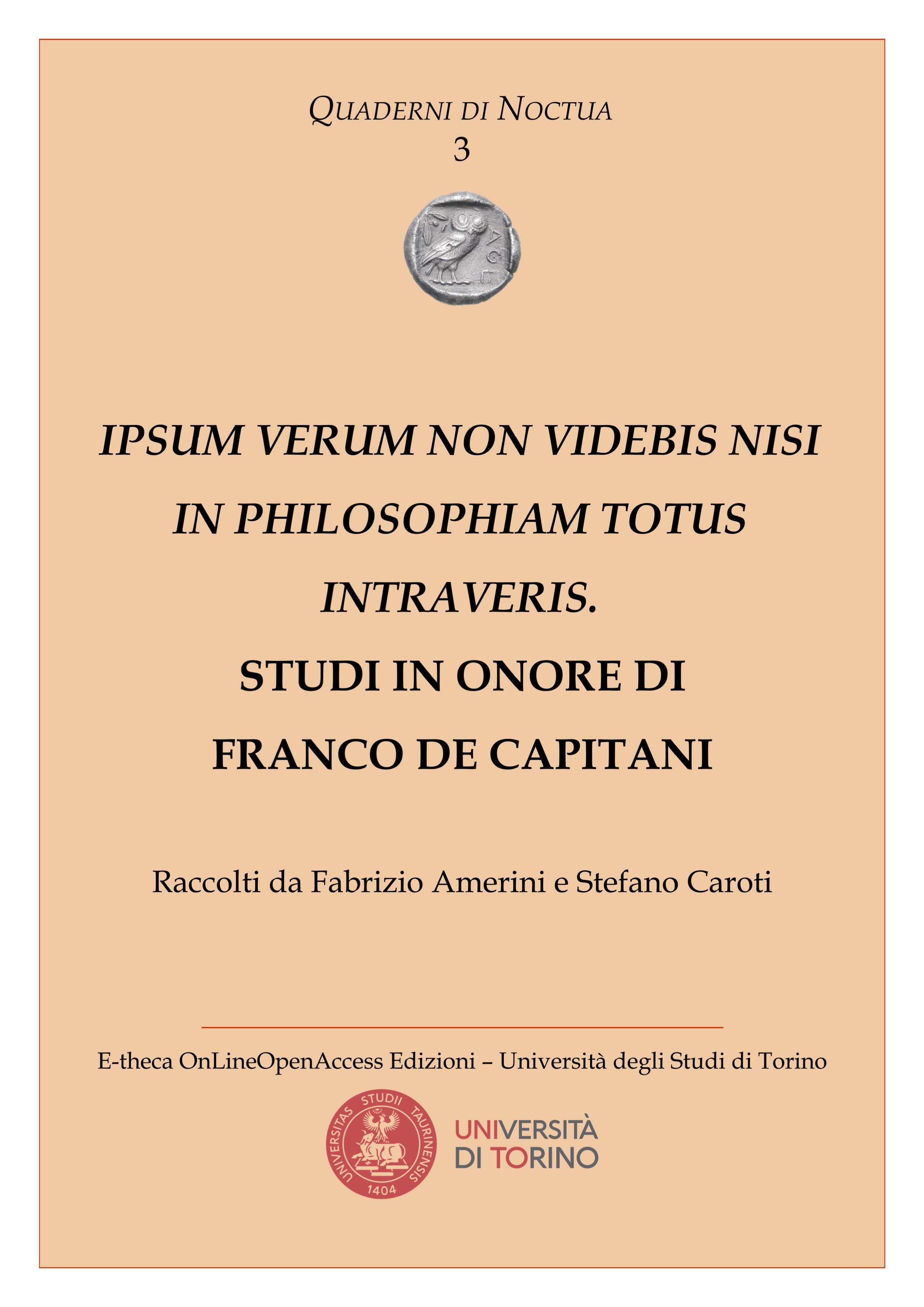Ordo eruditionis. Memoria delle discipline. Tracciati di razionalismo agostiniano
DOI:
https://doi.org/10.14640/QuadernidiNoctua3-6Parole chiave:
Augustine, Manichaeism, rationality, Cicero, logic, rhetoricsAbstract
This article offers an analysis of the problem of Augustine’s rationalism, by paying particular attention to his Dialogi, in which the Ciceronian and Christian ideal of the search for truth (quaerere veritatem) emerges as a life-long project. It shows how in Augustine’s thought the overcoming of Manichaeism has to be understood as a liberation from an ‘experience of madness’, or ‘perverse logic’, produced by an imagination unable to rise to pure rationality, in contrast with the ideal of order typical of classical education, and in particular of the rhetorics, based on Cicero, which Augustine had learned in African schools.
##submission.downloads##
Pubblicato
Fascicolo
Sezione
Licenza
Copyright (c) 2016 Marta Cristiani

TQuesto lavoro è fornito con la licenza Creative Commons Attribuzione 4.0 Internazionale.
Noctua pubblica contributi Diamond Open Access secondo i termini della licenza CC BY / Noctua publishes Diamond Open Access contributions under the terms of the CC BY license.






